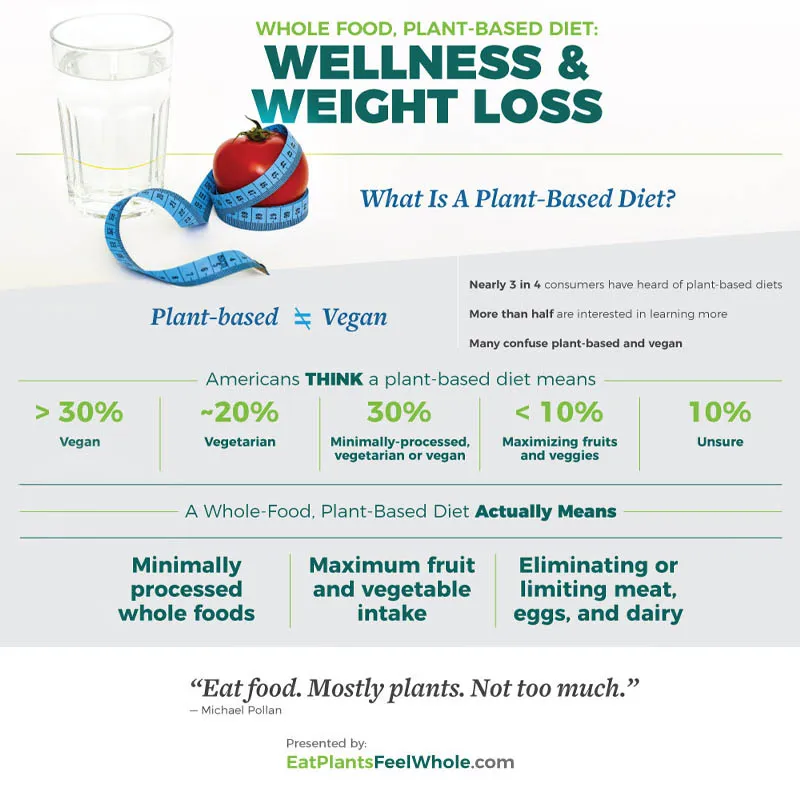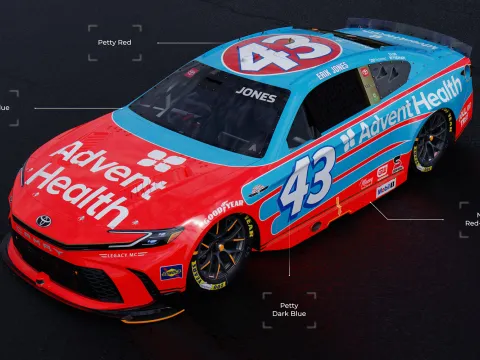- AdventHealth

We’re on the right track: Studies show that Americans are interested in changing their diets to improve their overall health and well-being. But, as we search for options, it can be hard to navigate so much information.
Most experts today recommend plant-based diets for the many health benefits, including helping you:
-
Control your blood pressure
-
Decrease your cancer risk
-
Limit your bad cholesterol
-
Lower your blood sugar
-
Maintain a healthy weight
-
Reduce the number of medications needed to manage chronic health conditions
-
Slow cognitive decline
But while nearly 3 out of every 4 people have heard of whole, plant-based eating, most are confused about what it actually means. We’re here with the facts so you can make the best possible decision for your family.

Plant-Based Eating Basics
More than 30% of Americans think plant-based and vegan eating are the same thing. And while it’s true that vegetarian, vegan and Mediterranean diets are all plant-based, each eating style varies slightly in what’s included and avoided.
The general term “plant-based diet” describes any style of eating that involves eating fewer foods of animal origin including meat, poultry, dairy, eggs and fish — in favor of all or mostly foods of plant origin, including:
-
Beans, lentils, peas
-
Fruits
-
Herbs and spices
-
Nuts and seeds
-
Olive oil and other plant oils
-
Vegetables
-
Whole grains
But beware — junk food can be made from plants, too. Consider a bag of potato chips or licorice: Both are technically plant-based, but they’re also highly processed and low in nutrients. When making the shift toward plant-based eating, it’s important to remember that plant foods generally have the most nutritional value when they are eaten close to their original form. Here are some examples:
|
Whole Food |
Processed Food |
|
Whole fruit |
Fruit juice |
|
Steel-cut oats |
Instant flavored oats |
|
Nuts and seeds |
Pretzels, crackers |
|
Brown rice |
Instant white rice |
|
Baked potato |
Instant potatoes |
|
Corn on the cob |
Canned creamed corn |
So how do you know you’re finding whole foods? You’ll know you’re on the right track if the foods in your cart were found in the produce section, have no label at all, have just one ingredient or you recognize everything on the ingredient list.
Instead of complicating your grocery run, you may find gravitating toward this style of eating can actually simplify your shopping trip and involve less label reading overall.
Plant-Based Proteins
It may surprise you to learn that we can get all the protein we need from plants. In fact, 1 of every 3 Americans chooses plant-based proteins over animal-based options each day. Some great plant-based protein sources include:
-
Edamame (soybeans)
-
Legumes (beans, lentils and peas)
-
Nuts and nut butter
-
Quinoa
-
Seeds (including chia and flax) and seed butter
-
Tofu and tempeh
But following a plant-based diet doesn’t mean you have to avoid all animal foods. While this list should provide most of your protein, you still may enjoy a piece of salmon or scrambled eggs from time to time.
Plant-Based Diets Are Easier on the Environment
In addition to being good for your health, plant-based diets are also good for the health of the planet. Plant-based eating requires less water and land, and also emits less harmful greenhouse gasses.
Habits and Taste Buds Can Change
It’s true that habits are hard to break, especially when it comes to our food preferences and eating plan. But research shows that just like muscles, taste buds can be trained. Over time, we can learn to enjoy — and even crave — new, healthy foods.
Plant-based eating doesn’t have to be boring or bland. With the right recipes, meal and snack ideas, anyone can shift their habits and move towards better health.
Read more about how to adopt a plant-based diet.


